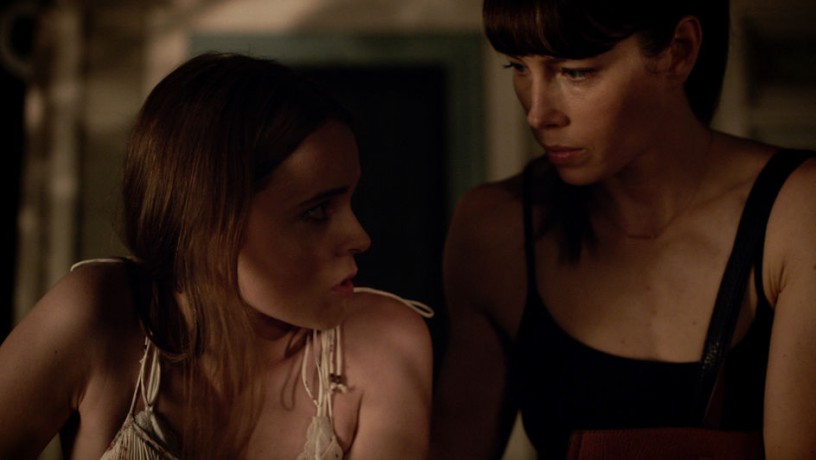As a young performer, you’re going to be working with numerous Directors. Each Director has their own style so you’re going to have to learn how to adapt from one style to the next in order to share the Director’s vision. When you see eye to eye, that’s when everything comes together and makes great entertainment.
…
I think it’s better to be a little lost and find your way with the Director and the writers. – John David Coles
Director and Executive Producer John David Coles, who resides in New York, has worked his craft since boyhood. Each and every step he took brought him to where he is now — a well respected, always working Director.
…
John recently completed work on Season Two of the USA Network show The Sinner starring Bill Pullman, Jessica Biel and Elisha Henig (young performer). Other projects you may recognize him from include Homeland, House of Cards, Law & Order, Grey’s Anatomy, Sex and the City and Desperate Housewives.
…
John shares his expertise below by giving us an inside look at what it’s like to work with young performers.
…
You’re not only a Director, but an Executive Producer as well. What led you into the entertainment field?
…
I made a documentary about Amherst, where I was going to college, and the school put on a symposium. One of the people that came was Arthur Penn (Bonnie and Clyde, The Miracle Worker). It turned out he was starting a film called Four Friends in Chicago, and he remembered that I wanted to be an editor, but they didn’t want to take a green Production Assistant to Chicago, so they left me in New York.
…
I was introduced to film editor Barry Malkin, who I ended up working with for four years. (Barry had numerous collaborations with Francis Ford Coppola.)
…
While I was doing that, I made a short film called Hellfire, which was about a television evangelist. It got a lot of attention at film festivals, so that became my calling card. That’s how I got into doing my first feature, Signs of Life.
…
You have your own production company called Talking Wall Pictures. What are the ups and downs of having your own production company?
…
When I was first starting out, I also did a lot of theatre. I directed some theatre and I got to work with some of the most wonderful people such as Stella Adler. So I was studying and working and meeting people. It was through one of those relationships that I met a playwright and we wrote Signs of Life.
…
After that, I developed Talking Wall Pictures. I determined that would be a more interesting way to go, in doing so, to give playwrights who I think have very distinct voices, a place to explore their ideas in film in a context in which they would have a lot of freedom.
…
Regarding ups and downs, for every one project you make, you develop a dozen. Sometimes they work out and sometimes they don’t. It could depend on financing, casting, etc. Sometimes developing a project leads to other opportunities. So having a production company that develops screenplays has been a very positive thing, but it has been a roller coaster.
…
You’ve also directed theatre. What are the differences between directing the stage vs. the screen?
..
There’s no doubt that when you direct a movie, you’re manipulating all of these things that you put together. When you direct theater, you’re creating a little family that can live without you.
…
Who are some of the young performers you’ve worked with and on what films / shows?
…
Over the years I’ve had a number of occasions. Most notable was my second film, Rising Sun, and it starred Brian Dennehy and a very young Matt Damon in his very first feature role. He was in college at the time, at Harvard. He wasn’t a kid but he was 17 or so at the time. He took a semester off. One could see the incredible raw talent and it was obviously the beginning of what would be a long and extraordinary journey for him.
…
Most recently you’ve been working on USA Network’s The Sinner. This is a dark story about brutal crimes. How did you come about this opportunity?
…
I came in at the start of the second season. I was in Berlin doing a show called Berlin Station and also worked on Mr. Mercedes during The Sinner’s first season. They were looking for someone to be a producing director for season two and they wanted someone who was local in NY who shared the sensibilities of the show. So I met with them and I really hit it off with the creator Derek Simonds.
…
You’ve worked on productions that have been filmed in different locations other than your home base. How does it work when young performers need to be re-located for a job?
…
Usually what happens is they, like every actor, find an apartment if the job is long term or a hotel if it’s short term.
…
Younger aged performers can only work a certain amount of hours a day. When directing scenes with these actors, how are you made aware of time? Does having the time limit affect your work?
…
There is a guardian, usually a parent that comes with him or her and then there are very clear guidelines both from the state, the Labor Board and SAG-AFTRA about how long you can work with a kid, how long they have to be tutored each day. So it’s hard on a show like The Sinner where you have a 13 year-old actor who had such a large role because he’s not allowed to work more than a certain number hours a day. So you find yourself doing some very creative scheduling. You have to find ways to work other sequences in between.
…
The Assistant Director does the scheduling and also keeps track of the kids’ hours. When you’re directing television, you’re doing five to eight pages a day. Time is a very central issue to a day’s structure, so you know exactly when a kid is coming, when they have to break, when they have to go at the end of the day. Often times you’ll have to improvise to stay within those parameters, for example, if the shot is outdoors and the weather changes.
…
Tell us the story about the most memorable scene you had with a young performer.
…
Without question, the most memorable scene with a youngster is The Sinner finale; a scene with Carrie Coon and Elisha Henig. It’s just a scene in which we see a young man taking control of his life and becoming a grown up, right in front of our eyes. It’s a very powerful scene. It was one of the more satisfying challenges.
…
Have you ever had to deal with a difficult parent or guardian?
…
Because I’m the Director, usually what happens, if there are issues that have to deal with the relationship of the parent to the production, for the most part that’s handled by the producer and the parent. I’m a creative producer, not the line producer, so issues like that are handled by the line producer and the AD’s. Every show has its own dynamics. On The Sinner, we did four months of shooting and it was a family dynamic.
…
How much say do you have in casting young performers?
…
As with all the main roles on The Sinner, it was a combination of the creator Derek Simonds, the Director of those episodes Antonio Campos, the other Executive Producers such as Charlie Gogolak and Jessica Biel, and me. So I think everyone had a say in it, but for the most part it was Antonio, myself and the creator. We went to the casting and then we presented our choices to the network. We worked through it internally, then the network. On The Sinner it was a very positive process for everyone involved.
…
What advice do you have for young performers who have just booked their first major role?
…
If I had a piece of advice from working with young performers, I would say don’t over prepare. I think there’s a tendency to work everything out in advance either with their coach or parent, and then they come in with a certain way of doing it. I think that if they can understand the role, do their research and be open to what the Director and writers have in mind, that would be better. That’s a big hurdle I’ve seen with young performers. They tend to come in and are not necessarily in the moment because the over preparation leads to a situation in which what the Director and the writers want isn’t what the actor has prepared, and then they find themselves a little lost. I think it’s better to be a little lost and find your way with the Director and the writers.
…
Anything else you’d like to say?
…
It’s been lovely. I enjoyed talking to you, NYCastings!







